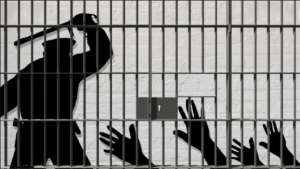GS2 – Governance

- Trigger: A recent custodial death in Tamil Nadu has once again exposed deep-rooted flaws in the system concerning police accountability.
Structural Issues Behind Impunity
- Zero Convictions: From 2017–2022, no police official was convicted for custodial deaths, revealing systemic failures.
- Contributing Factors:
- Lack of Institutional Resolve: Weak administrative and political will hampers justice.
- Inadequate Evidence Mechanism: Poor witness protection and weak forensic practices hinder trials.
- No Independent Investigation: Investigations are rarely impartial, often undermining credibility.
- Solidarity Culture in Police: Officers often protect their peers, shielding them from legal repercussions.
Human Rights Data:
- 74 human rights violation cases—from illegal detention to torture and death—were recorded between 2017 and 2022, most resulting in negligible accountability.
Caste Disparities in Tamil Nadu
- Overrepresentation of SCs: Though Scheduled Castes form around 20% of Tamil Nadu’s population, they constituted 38.5% of detainees in 2022.
- Preventive Detention Misuse: Tamil Nadu had 2,129 preventive detainees (nearly half of India’s total), many booked under the Goondas Act without formal charges—disproportionately affecting marginalized communities.
Existing Legal Safeguards
- Article 21: Protects life and liberty from arbitrary state action.
- CrPC Section 176(1A): Mandates judicial inquiries for custodial deaths.
- NHRC Guidelines: Require immediate reporting, video-recorded post-mortems, and independent investigations.
- SC Judgment – D.K. Basu v. State of West Bengal (1997): Lays down mandatory procedures during arrests and detention.
Reform Recommendations
- Establish independent complaints authorities with legal and operational autonomy.
- Set up fast-track courts for custodial violence cases.
- Make CCTV and bodycams mandatory in all custody facilities.
- Empower NHRC with prosecutorial powers and resources.
- Enforce police reforms proposed by the Second ARC and the Prakash Singh case.
- Train police in human rights and anti-caste discrimination practices.
- Enact a standalone anti-torture law, as per Law Commission recommendations and UNCAT obligations.




